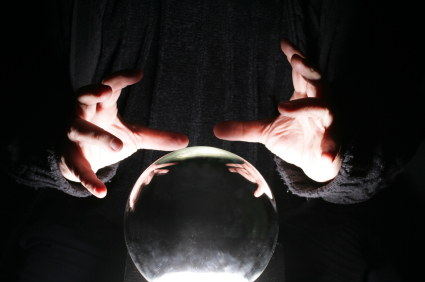Forecasting is part of life. And it’s certainly part of economics and finance. Anyone who puts together a view of the economy or an investment portfolio has to make some forward looking assumptions. They have to make forecasts about how the future might play out even if they’re just making vague implicit forecasts (for instance, you might be a buy and hold investor because, historically, stocks go up, therefore, you think they’ll continue to go up). Some people do this in rather intelligent ways while others do this in biased and rather unintelligent ways.
I got to thinking about this as I read this nice post by Noah Smith on the difficulties of forecasting and the trouble with identifying good forecasters. Noah says:
Obviously, these warnings would have zero informational content about actual inflation. But how would you go about differentiating between such a bot and a real human being? Is there some kind of Turing Test for macroeconomic forecasters?
…
In the meantime, our tools for identifying unreliable forecasters are rather primitive — a combination of reputation, bluster, excuses, insults and counter-insults. It’s all a bit silly, and it generates a lot of bad feelings all around. But what else can we do?
- Does the forecaster work from a political perspective of the world? If so, they are likely biased in their views and instead of viewing the world for what it is, they are making forecasts based on how they want the world to be. We saw this consistently around QE forecasts when people who are politically against the Federal Reserve, made repeated predictions about impending doom. Political bias is probably the most common and destructive bias that impacts forecasting. Avoid politically biased forecasters at all costs.
- Beware of optimism/pessimism bias. This often stems from political bias, but we tend to find that people in economics and finance are highly biased towards one view, either optimistic or pessimistic. This will tend to cloud their thinking and lead them to conclude that any sort of policy or economic variable will naturally conform to their broader biased perspective. People with a long track record of one consistent optimistic or pessimistic view should be ignored. Classic examples include permabulls like Jeremy Siegel or permabears like Marc Faber.
- Beware the fallacy of composition. People who can’t think in terms of the big picture are often biased in terms of their narrow views. We are highly prone to thinking about finance and economics as it pertains to our lives at a personal level, but what’s good/bad for you at a personal level might not be true at the aggregate level.
We’ll never identify perfect forecasters (because they don’t exist). But we can, with a high probability, eliminate the largely useless forecasters from the more valuable forecasters. And identifying common behavioral biases is often one of the best ways to achieve that. More importantly, when making your own forecasts, rather than relying on some talking head, ensure that you aren’t falling for these common biases yourself….
Mr. Roche is the Founder and Chief Investment Officer of Discipline Funds.Discipline Funds is a low fee financial advisory firm with a focus on helping people be more disciplined with their finances.
He is also the author of Pragmatic Capitalism: What Every Investor Needs to Understand About Money and Finance, Understanding the Modern Monetary System and Understanding Modern Portfolio Construction.

